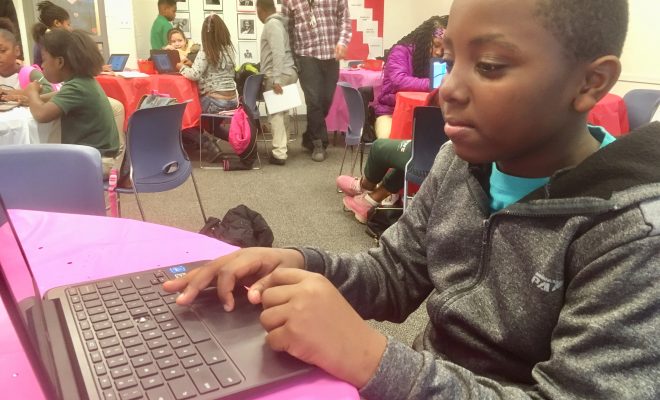Kids are Born Creative Geniuses But the Education System Destroys Imagination

One of the growing concerns of the education system, from parents, teachers, and students alike, is the increasing amount of mandated testing. While standardized tests have been used for decades, the passage of 2002 NCLB (No Child Left Behind) and 2009’s RTTT (Race to the Top) legislation connected to the Common Core Curriculum, has led to a skyrocketed usage of them as it became mandated that all 50 states need to use them.
The National Center for Education Statistics released a study showing the drop of the United States from 18th in the world to 40th in math, 14th to 25th in science, and 15th to 24th in reading from 2000 to 2015. While these results are worrying, there is an often underlooked at issue; the detrimental effect it has on kids being continually and incessantly tested from elementary school through high school.
The Decline in Creativity
Dr. Kim of the School of Education at The College of William and Mary conducted a study called The Creativity Crisis: The Decrease in Creative Thinking Scores on the Torrance Tests of CreativeThinking which found that while test scores at increasing on assessments such as the SAT (Scholastic Assessment Test) general creativity decreased especially between kindergartners through third graders and fourth through sixth graders.
It isn’t until adulthood is reached that some amount of creative thoughts and originality begin to climb back up. This connects back to the NCLB and RTTT as school funding becomes increasingly connected to test scores which, in turn, are focused primarily on reading, writing, math, science, etc. Creative programs such as music, band, and visual arts become the first ones on the chopping block.
Cutting Creativity
NPR released an article using data from Oklahoma’s State Department of Education that in the span of 4 years (2014-2018) over 1,000 fine arts classes were cut and almost 30% of students in public schools are at schools without any fine arts classes. This approach is mirrored across the country as reported by the U.S Department of Education as, for example, music and visual arts in elementary and secondary schools being offered in only 4% of schools.
The effects of this reduced creativity couldn’t be better outlined than by Sir Ken Robinson who was the Director of the Arts in Schools Project and Professor of Arts Education at the University of Warwick in his 2006 TedTalk titled Do School Kill Creativity? He brought up the example of Gillian Lynee, a now-famous choreographer, and her education experience growing up:
“…she went to see this specialist. […] she sat on her hands for 20 minutes, while this man talked to her mother about all the problems Gillian was having at school. But as they went out of the room, he turned on the radio that was sitting on his desk. And when they got out of the room, he said to her mother, “Just stand and watch her.” And the minute they left the room, she was on her feet, moving to the music. […] and he turned to her mother and said, “Mrs. Lynne, Gillian isn’t sick. She’s a dancer. Take her to a dance school.”
Kids naturally have an instinct towards creativity, drawing, movement, and many other outlets but that instinct gets suppressed as testing, testing, and more testing take priority. The main question becomes what is gained and is it worth the cost?






